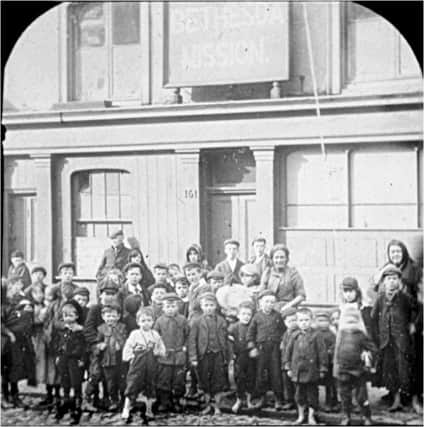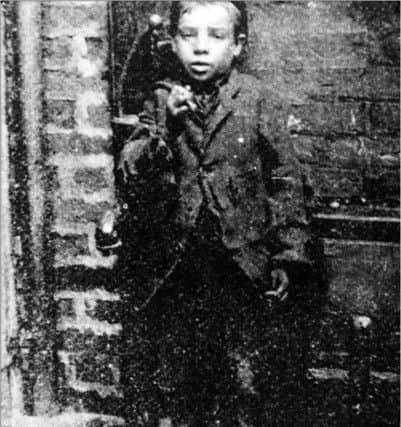Sunderland's massive efforts to help its poor


And back in the early 1900s, it was never more evident than in the harsh winters of the times.
If you ever needed an example of how generous the people of Wearside were, read this story of generosity which comes to us from Philip Curtis of the Sunderland Antiquarian Society.


Advertisement
Hide AdAdvertisement
Hide AdHe looks back at the days of harsh winters and how Sunderland rallied to the cause of the poor, the starving, and the freezing.
Successive harsh winters on Wearside in the early part of the twentieth century brought great concern.
Much of it centred on the welfare of the children of Sunderland which came from families where the potential breadwinners were unemployed.
But the people in power tried hard to help.


On the north side of the town, the Monkwearmouth Bairns’ fund regularly supplied free breakfasts for local children.
Advertisement
Hide AdAdvertisement
Hide AdBy December 1907, the Monkwearmouth Bairns’ fund was providing 700 breakfasts which were distributed in the Salvation Army premises in Roker Avenue.
They were not alone in giving a helping hand.
During the same month, the Deptford and Ayres Quay Breakfast Fund began providing a free daily breakfast at Simpson Street School for over 500 children. It was a mammoth task which entailed 80 gallons of coffee and 16 stone of bread being given out daily.
Each child had to bring their own mug and it was reported that some arrived with pint pots, others with milk jugs capable of holding a pint and many with only battered tin mugs or cracked cups.
Most of the children sat on the floor with a jam sandwich and coffee. It was estimated that there was almost half a pound of bread to each sandwich. On Saturdays tea cakes took the place of the jam and bread.
Advertisement
Hide AdAdvertisement
Hide AdTo cover the cost of this, collecting boxes were distributed around the local public houses.
Donations from Wearside businesses were also sought and the workmen at the nearby Laing’s shipyard arranged a weekly subscription to the fund.
At Wesley Hall in Trimdon Street, a soup kitchen was set up during the winter of 1907.
Every Tuesday, Thursday and Saturday 75 gallons of soup with bread were distributed.
Advertisement
Hide AdAdvertisement
Hide AdRegular appeals went out for peas, rice, lentils, bones and bread to be sent to the hall on Mondays, Wednesdays or Fridays. Cast-off clothing was also requested.
That winter, there were a number of soup kitchens in the town including one at the London Tavern in Sunderland Street where the landlord fed over 1000 children.
But it was not just a lack of food which caused problems for the hard-up.
When the freezing blizzards arrived that year, many of the poor Wearside families could not afford coal to keep their fires going.
Advertisement
Hide AdAdvertisement
Hide AdCharity workers appealed for donations and one of the first to step forward with aid were the workmen of T.S. Forster’s who all agreed to pay one penny a week to the coal fund.
Mr Forster himself promised to add 25% to whatever the men paid.
In an attempt to raise public awareness to the appeal a number of desperate cases of need were publicised.
One of these involved a man who had nine children and had been out of work for ten weeks. When coal tickets were given to him, tears ran down his cheeks.
Advertisement
Hide AdAdvertisement
Hide AdIn another case, a family including three children and an unemployed father had to leave their cottage and move into a cellar, which was allowed rent free.
It was in a deplorable condition and had a stone floor. The charity was a godsend to them.
Breakfasts, coal and relief funds helped the Wearside poor survive the harsh winters of the early 1900s.
Wearsiders rallied and donations to the funds from the business section of the town were usually very good and always very welcome.